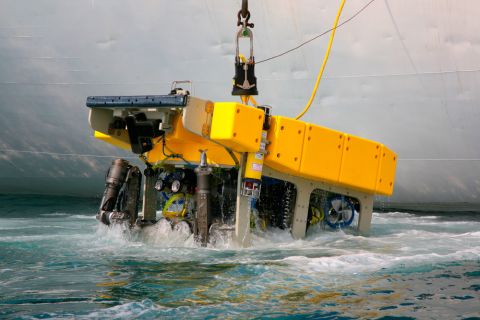Russia-it's the destination du jour for Western companies looking to boost their oil production, in theory at least. In practice, lingering doubts about the country's interests, laws and infrastructure have tempered the majors' growth plans there. Until now. BP Plc has announced plans to make the single largest investment by a foreign company in post-Soviet Russia. The oil giant struck an agreement with the Alfa Group and Access-Renova (AAR) to combine their interests in Russia to create the country's third-biggest oil and gas business. BP offered to pay $6.75 billion in cash and stock for a 50% stake in the new company. The deal is "a major strategic step into a country with massive oil and gas reserves and immense potential for future growth," says BP chief executive officer John Browne. It combines two existing Russian oil companies-TNK and Sidanco-which produce approximately 1.2 million bbl. of oil a day between them. BP's investment is particularly notable because the company experienced some trouble doing business in Russia in the past-the type of experience that exacerbated the country's rough-and-tumble reputation. After paying $571 million in 1997 for a 10% stake of Sidanco, BP took a large writedown on its investment after a dispute with TNK. However, BP last year bumped up its Sidanco stake to 25%, and appears to be comfortable with the lessons it learned from the experience. "We had a tough time initially, but after the present management and ownership structure were established early in 2001 we have gradually built an important, mutually beneficial relationship with the owners of AAR and learned a great deal about doing business in Russia," Browne says. He assured investors that BP conducted a thorough examination of the assets during the past year, and put in place a system of governance that safeguards its interests. "These prudent measures, combined with Russia's greatly improved economic stability, improved legal system and increasing commitment to international rules of trade and business, have convinced BP that now is the time to deepen our partnership with AAR." Thane Gustafson, senior director of Eurasian energy for Cambridge Energy Research Associates (CERA), said at CERA's annual conference in Houston that the BP deal "truly opens up an entire new chapter" for the Russian oil industry. And it could have some implications for the gas industry. TNK currently is a major producer of associated gas in Russia, most of which is flared. But since BP is trying to build a reputation as a "green" company, it likely will seek to move that gas to market, rather than flare it, Gustafson said. That could position BP as a major force in pressing the state-owned gas giant Gazprom for third-party access to its pipelines, he said. It's only a matter of time before more Western companies fully realize that the Russia of today is drastically different than the Russia of just 10 years ago, said speakers at a recent Strategic Research Institute conference in Houston. Some smaller independents are boasting success there, and claim that other firms can. "I say as a Brit, Americans still have a touch of the Cold War," said Peter Hill, president and chief executive officer of Harvest Natural Resources Inc., which has production in Russia and hopes to make another acquisition in Russia this year. "Americans really do not understand how quickly Russia has turned the corner and what is going on," said Howard Cooper, president and chief executive officer of Teton Petroleum Co., another U.S. company with oil production in Russia At the CERA conference, Walter Van De Vijver, group managing director and chief executive officer of E&P for Royal Dutch/Shell, said that while Shell has growth aspirations in Russia, it can't ignore the major risks of doing business there. -Jodi Wetuski
Recommended Reading
US Oil, Gas Rig Count Falls to Lowest Since January 2022
2024-05-03 - The oil and gas rig count, an early indicator of future output, fell by eight to 605 in the week to May 3, in the biggest weekly decline since September 2023.
Pemex Reports Lower 2Q Production and Net Income
2024-05-03 - Mexico’s Pemex reported both lower oil and gas production and a 91% drop in net income in first-quarter 2024, but the company also reduced its total debt to $101.5 billion, executives said during an earnings webcast with analysts.
Chouest Acquires ROV Company ROVOP to Expand Subsea Capabilities
2024-05-02 - With the acquisition of ROVOP, Chouest will have a fleet of more than 100 ROVs.
SLB, OneSubsea, Subsea 7 Sign Collaboration Deal with Equinor
2024-05-02 - Work is expected to begin immediately on Equinor’s Wisting and Bay Du Nord projects.
SilverBow Makes Horseshoe Lateral in Austin Chalk
2024-05-01 - SilverBow Resources’ 8,900-foot lateral was drilled in Live Oak County at the intersection of South Texas’ oil and condensate phases. It's a first in the Chalk.




